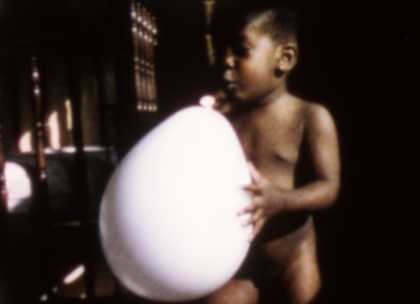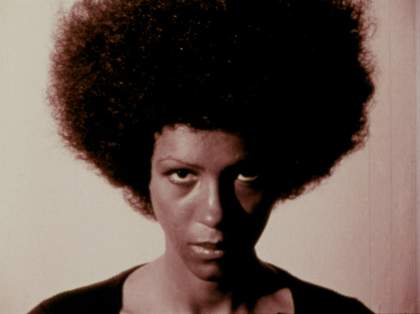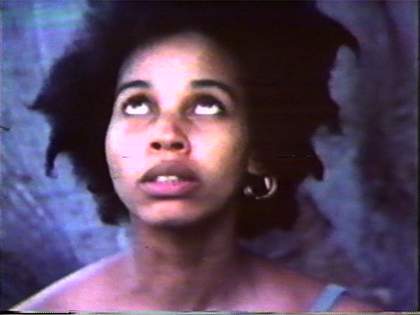The early works by Ben Caldwell and Larry Clark show the range of formal innovation of two of the most innovative filmmakers associated with the LA Rebellion. Unified by their interest in collaboration both filmmakers developed their innovative bodies of work in dialogue with their communities. Larry Clark directed the Film Workshop at PASLA, The Performing Arts Society of Los Angeles (founded by Vantile Whitefield in 1964) and Ben Caldwell founded the ongoing KAOS network, a community arts center in Leimert Park in South Los Angeles.
Film programme
Medea
Ben Caldwell, USA 1973 Digital video, transferred from 16mm, colour, 7 min
Wildly inventive Ben Caldwell’s early films show his incredible formal invention and rich multi-disciplinary practice. Medea is an epic film that combines symbolic images of clouds and a pregnant woman with dense animation of images and photographs spanning the history of African people in just a few minutes. Accompanied by Amiri Baraka’s polemical poem Part of the Doctrine the film explores connections between race, culture and spirituality.
I & I: An African Allegory
Ben Caldwell, USA 1979, 16mm, colour, 32 min
Preservation funded in part by a grant from the National Film Preservation Foundation
A veteran of the Vietnam war Caldwell’s I & I: An African Allegory looks to ancient history and culture to explore the past unity between people brutally ruptured by the legacy of slavery, conflict and war. With this visually striking and immersive film Caldwell sought to change the dominant rhythm of cinema and express anger at the violent separation between people. As Caldwell has stated ‘to me films needed to be infused with what has been called ‘soul’ in music.’
Tamu
Larry Clark, USA 1970, 16mm transferred to digital video, colour, 12 min
Larry Clark's early film Tamu draws on two icons of black power, Malcolm X and Angela Davis.
In its portrait of a young African American man and woman in South Central Los Angeles who we follow as they move through the city thinking about racism and revolution, the famous words of Malcolm X reverberate throughout ‘We don't see any American dream. We've experienced only the American nightmare.'
As Above, So Below
Larry Clark, USA 1973, 16mm, colour, 52 min
Larry Clark's astonishingly potent film reveals a black revolutionary group hidden in America preparing to raise up and overthrow a corrupt federal government and capitalist system that thrives on their oppression. Tracing the origins of this black insurgency over several decades the film follows its central character caught in what Malcolm X called the 'psychological warfare' unleashed on the black population, preached at by a prosaic church and corrupt capitalist society. A political critique of U.S. foreign and domestic policy, and the legacy of guerrilla warfare in Vietnam, the film turns the tables to imagine a black underground plotting to bring revolution to North America.
All prints courtesy of the UCLA Film & Television Archive.



